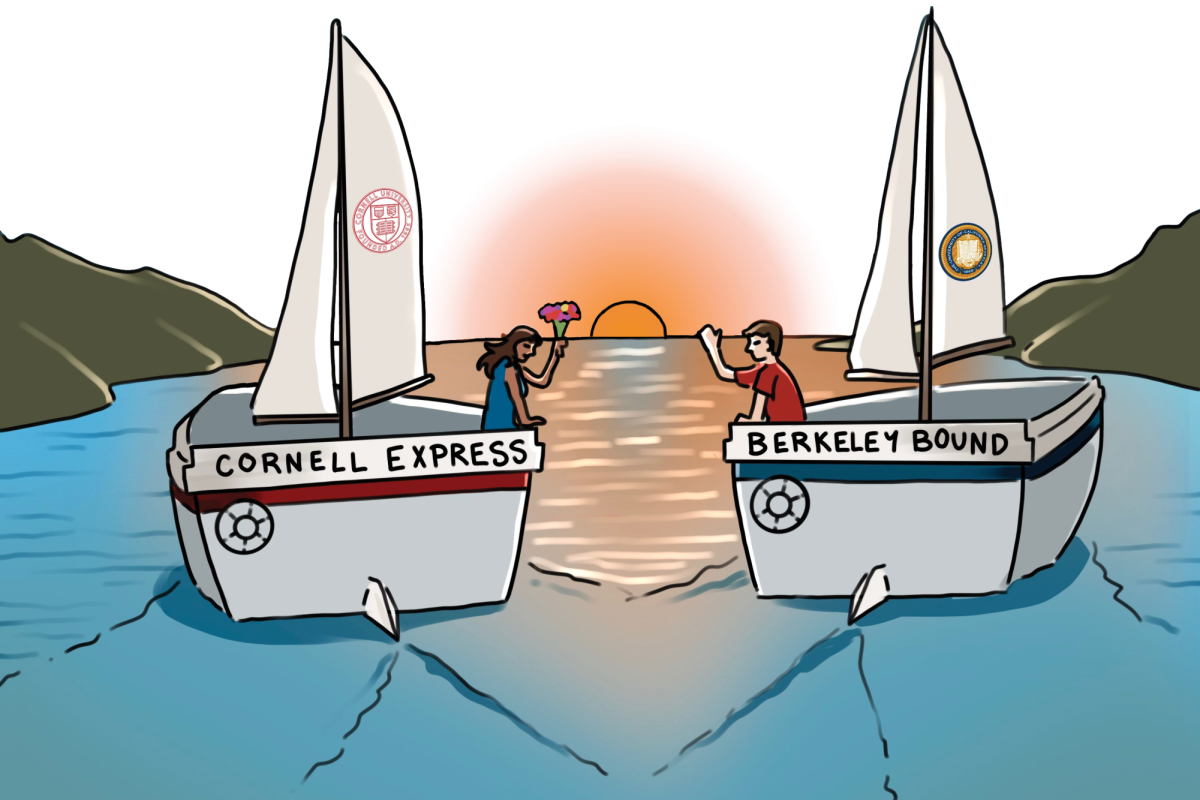By Justine Goode
When Nadia Dubovitsky ’12 turned 18, she celebrated by going to a gas station and purchasing a pack of Camel cigarettes and a Mega Millions lotto ticket. She wasn’t planning on using either of them — it was simply an easy way to take advantage of her new adulthood. Many new opportunities arise when teenagers become legal: they can now legally get tattoos and piercings, go gambling and register to vote. But Dubovitsky said she has yet to take advantage of the last opportunity, though she plans on doing so well before the 2012 presidential election in November.
To register to vote in California, one must be a United States citizen, a resident of California, 18 years of age or older on Election Day, not in prison or in county jail and not found by a court to be mentally incompetent. To register is simple: just pick up a voter registration form at a county elections office, library or U.S. Post Office, fill it out and make sure it is postmarked or hand-delivered to a county elections office at least 15 days before the election.
“Registering to vote takes no time at all,” history teacher Drew Maddock said. “You pick up a voter registration form at the Post Office or you sign up at one of those tables you always see outside Target or the super market. If you haven’t registered, what are you waiting for?”
Wesley Friedman ’12 will cast his vote in the upcoming primary.
“It’s exciting to vote in an election for the first time,” Friedman said. “As cliché as it sounds, it’s an important part of being a U.S. citizen.”
Charlie Troy ’12 is also eligible to vote and intends to do so in the presidential election.
“It makes me feel like I can actually have a say in what the government is doing,” Troy said. “Although my vote doesn’t count for much, it still makes me feel like I’m actually an adult and also more connected to this country.”
However, Troy still does not know which candidate he will be voting for, since he “has not been impressed by any of them so far.”
In the upcoming November election, some of the current junior class will be able to vote, but most of it won’t. Maddie Lear’s ’13 birthday falls just after the election in late November.
“I’m really disappointed, especially because the year I turn 18 just happens to be a big election year,” she said.
However, she aims to stay informed and remain involved in the election in whatever way she can.
“I try to stay up-to-date with what’s going on in the primaries, and I will try to stay aware of everything that is going on,” she said. “I haven’t really thought about volunteering, but I guess that would be my other option.”
Lexi Fadel ’13 will be able to vote in the 2012 presidential election.
“I like it,” she said. “I feel like I have some more power and freedom. I also like how I will have a say on who will run the country that I live in.”
Some of her good friends will also be able to vote, and they occasionally discuss it, but she said the matter doesn’t come up around friends who will not be eligible.
With such a major political event on the horizon, U.S. history teachers are eager to draw intriguing parallels to past elections, using current events quizzes to jumpstart discussions.
“After a current events quiz, we’ll take a good 15, 20 minutes, maybe even the whole class and have a good discussion on the current events themselves,” history teacher Dror Yaron said. “In Andrew Jackson’s election that he had with John Quincy Adams, there’s all kinds of back and forth, spewing accusations, and so I might relate it to Mitt Romney and Newt Gingrich. It’s one of these elements that have become apparent in American history, especially in politics and election season — to skirt the issues and instead unfortunately focus on the personal stuff. These gratuitous attacks really stray from the real issues that need to be tended to. So we weave it in, whether there are historical events that are pertinent or current events.”
While teaching their classes, some history teachers like Neisser and Yaron said they generally do not remain objective, nor do they take a single side, trying to convey all sides of a political situation.
“Given that one of the first things most of us history teachers talk about with our classes is the inherently subjective nature of history, one could say objectivity in any discussion of the subject is an impossibility,” Neisser said. “As my students look at the great issues that divided our country over the course of its history, I want them to understand fully the underpinnings of those issues.”


























